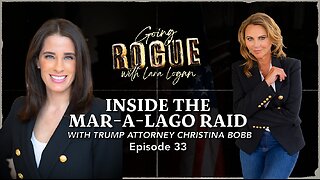Premium Only Content

HOW TO TRAIN a Baby Bird to EAT! _RESCUED_(this is the gift for you)
HOW TO TRAIN a Baby Bird to EAT! _RESCUED_(this is the gift for you)
Training a baby bird to eat is a delicate and crucial process that requires patience, care, and a thorough understanding of the bird's species-specific dietary needs. Here's a step-by-step guide to help you effectively train a baby bird to eat:
Identify the Species:
Different bird species have varied dietary requirements. Research and identify the specific needs of the baby bird you are caring for. This information will guide you in providing the most suitable food for the bird.
Prepare the Right Food:
Purchase or prepare a suitable bird formula or food that meets the nutritional requirements of the specific species. In many cases, specially formulated hand-feeding formulas for baby birds are available at pet stores. Follow the manufacturer's instructions for preparing the food.
Create a Comfortable Feeding Area:
Set up a warm and quiet area for feeding to minimize stress for the baby bird. Use a small, shallow container as a feeding dish, and ensure it is cleaned thoroughly before each feeding.
Maintain a Consistent Feeding Schedule:
Establish a regular feeding schedule to help the bird develop a routine. Young birds often need to be fed every 2-4 hours, depending on their age and species. Consistency is crucial for their well-being.
Warm the Food:
Before feeding, warm the prepared formula to the appropriate temperature. The ideal temperature is usually slightly above body temperature. Test it on your wrist to ensure it is not too hot.
Use a Syringe or Spoon:
Depending on the bird's size and species, use a small syringe or a spoon to feed the baby bird. Be gentle and patient during the feeding process, allowing the bird to eat at its own pace.
Feeding Technique:
Hold the bird securely but not too tightly, supporting its body and head. Place the syringe or spoon near the bird's beak, and allow it to take small sips or bites. Avoid forcing food into the bird's mouth, as this can cause stress or injury.
Monitor the Bird's Behavior:
Observe the bird's behavior during and after feeding. Signs of a well-fed bird include a contented demeanor, a slightly rounded crop (the pouch-like structure where food is stored), and increased activity.
Gradual Weaning:
As the baby bird grows, gradually introduce solid foods appropriate for its species. This process helps the bird transition to a more natural diet.
Consult a Veterinarian:
Regularly consult with an avian veterinarian to ensure the bird is developing properly and to address any health concerns. A vet can provide guidance on adjusting the feeding regimen as the bird matures.
Remember, raising a baby bird is a challenging task, and professional advice is invaluable. Always seek guidance from experienced avian experts or veterinarians to ensure the well-being of the bird in your care.
-
 LIVE
LIVE
Lara Logan
13 hours agoINSIDE THE MAR-A-LAGO RAID with Trump Attorney Christina Bobb | Episode 33
732 watching -
 LIVE
LIVE
The Mel K Show
1 hour agoMORNINGS WITH MEL K -This Labor Day Celebrate Liberty, Freedom & Family! 8-29-25
531 watching -
 LIVE
LIVE
The Shannon Joy Show
2 hours ago🔥🔥The Butchers At Hilo Benioff Hospital Hawaii - Mom Subjected To Forced C-Section & Abuse🔥🔥
279 watching -
 LIVE
LIVE
daniellesmithab
1 hour agoBetter, Faster, Smarter Access to Government Services
28 watching -
 LIVE
LIVE
LFA TV
6 hours agoLFA TV ALL DAY STREAM - FRIDAY 8/29/25
4,284 watching -
 LIVE
LIVE
Grant Stinchfield
19 hours agoEven DC’s Homeless Beg for Trump’s Law & Order — While Wacky White Liberal Women Scream NO!
178 watching -
 1:02:30
1:02:30
VINCE
3 hours agoGavin Newsom Is A Major Trump Fan | Episode 114 - 08/29/25
172K115 -
 1:32:10
1:32:10
Nikko Ortiz
3 hours agoPainful Life Experiences
30K7 -
 1:42:16
1:42:16
Dear America
4 hours agoThe Left Chooses TRANS Over Christianity!! WOKE Mayor Is Doubling Down!!
98.6K55 -

Caleb Hammer
2 hours agoGaslighting. Toxic. B*tch. | Financial Audit
24K